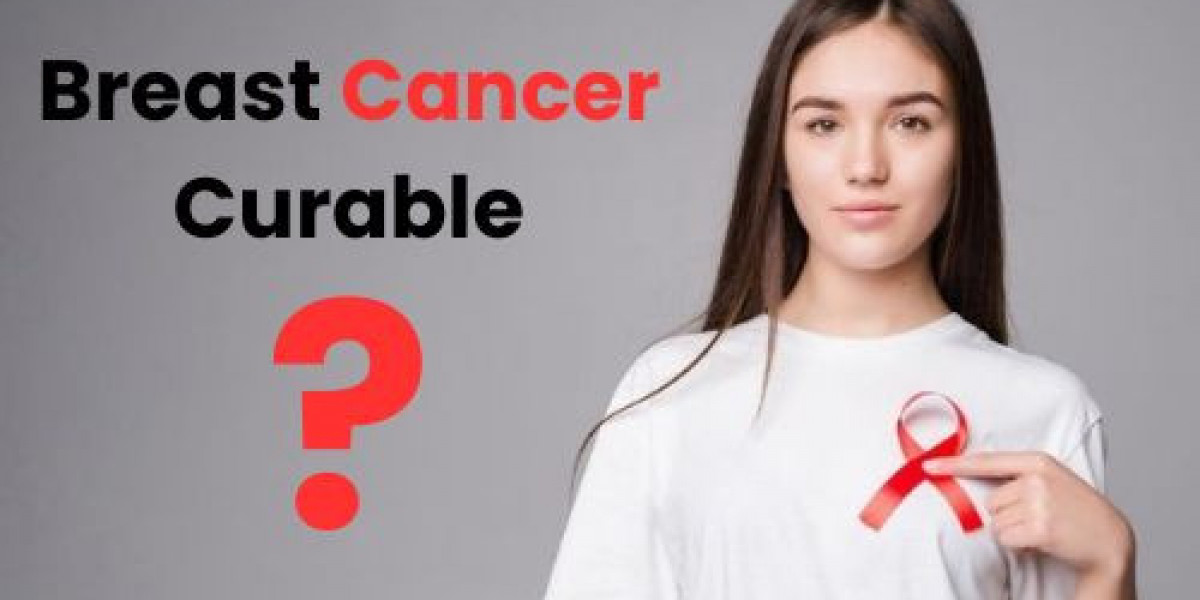Breast cancer remains one of the most common cancers affecting women worldwide. While significant advancements in treatment have improved survival rates, the focus on prevention is gaining momentum.
The question many ask is: Can breast cancer be prevented?
While there is no guaranteed way to eliminate the risk, research suggests that lifestyle changes, early detection, and medical interventions can significantly reduce the chances of developing breast cancer.
Dr. Kanuj Malik, a highly experienced surgical oncologist with 14 years of expertise, emphasizes the importance of understanding breast cancer risk factors and adopting preventive measures.
As a leading breast cancer specialist in Noida, he stays updated on the latest research to provide the best guidance to his patients.
Understanding Breast Cancer Risk Factors
Breast cancer is influenced by a combination of genetic, hormonal, environmental, and lifestyle factors.
Some of these risk factors are beyond our control, while others can be managed through preventive actions.
Uncontrollable Risk Factors
- Genetic Mutations: Inherited mutations in genes like BRCA1 and BRCA2 significantly increase the risk of breast cancer.
- Family History: A strong family history of breast cancer may indicate a higher genetic predisposition.
- Age and Gender: The risk of breast cancer increases with age, and women are more susceptible than men.
- Dense Breast Tissue: Women with denser breast tissue have a higher risk, making it harder to detect tumors early.
- Menstrual History: Early menstruation (before 12) and late menopause (after 55) slightly increase risk due to prolonged estrogen exposure.
Controllable Risk Factors
- Lifestyle Choices: Smoking, excessive alcohol consumption, and lack of physical activity contribute to increased risk.
- Obesity: Being overweight, particularly after menopause, increases estrogen levels, raising the risk.
- Hormonal Therapy: Long-term use of hormone replacement therapy (HRT) can increase breast cancer risk.
- Radiation Exposure: Excessive exposure to radiation, especially at a young age, can raise the likelihood of developing cancer.
Latest Research on Breast Cancer Prevention
Recent studies highlight key preventive strategies that can lower the chances of developing breast cancer.
1. Maintaining a Healthy Lifestyle
Research strongly supports that adopting a healthy diet and active lifestyle can reduce breast cancer risk.
- Regular Exercise: The American Cancer Society recommends at least 150 minutes of moderate-intensity exercise per week. Physical activity helps regulate hormones and supports a healthy immune system.
- Healthy Diet: A diet rich in fruits, vegetables, whole grains, and lean proteins while reducing processed foods and red meats can lower cancer risk. Studies indicate that a Mediterranean diet rich in olive oil, nuts, and fish is particularly beneficial.
- Limiting Alcohol Consumption: Studies have shown that consuming more than one alcoholic drink per day increases the risk of breast cancer.
2. Weight Management
Obesity, especially after menopause, is linked to increased estrogen levels, which can promote breast cancer growth. Maintaining a healthy weight through diet and exercise is a key preventive measure.
3. Breastfeeding
Research suggests that breastfeeding lowers the risk of breast cancer, especially for women who nurse for more than a year. This is due to hormonal changes that delay menstruation and reduce lifetime exposure to estrogen.
4. Avoiding Hormone Replacement Therapy (HRT)
Women considering HRT for menopause symptoms should discuss the risks and benefits with their doctor. Short-term, low-dose HRT may be safer, but prolonged use increases breast cancer risk.
5. Preventive Medications
Certain medications, known as selective estrogen receptor modulators (SERMs) and aromatase inhibitors, can help reduce breast cancer risk in high-risk women. These drugs work by blocking estrogen's effects on breast tissue.
6. Genetic Testing and Preventive Surgery
For women with a strong family history of breast cancer or BRCA1/BRCA2 gene mutations, genetic testing can provide valuable insights.
Some high-risk women opt for prophylactic mastectomy (preventive breast removal) or ovary removal surgery to significantly reduce their risk.
Dr. Kanuj Malik, an expert breast cancer specialist in Noida, recommends genetic counseling to assess risk levels and determine the best preventive approach.
Importance of Regular Screenings
Early detection plays a crucial role in breast cancer prevention. Regular mammograms and self-examinations can help identify cancer in its early stages when it is most treatable.
Screening Guidelines
- Women aged 40-49: Discuss mammogram screening with a doctor, especially if at high risk.
- Women aged 50-74: Get a mammogram every 1-2 years based on personal risk factors.
- Self-Examinations: Women should perform breast self-exams monthly to identify any unusual lumps or changes.
The Role of a Breast Cancer Specialist
Seeking guidance from an experienced breast cancer specialist in Noida, such as Dr. Kanuj Malik, can make a significant difference in understanding and reducing personal risk.
Dr. Malik’s expertise in surgical oncology helps patients navigate the complexities of breast cancer prevention, diagnosis, and treatment.
Final Thoughts: Can Breast Cancer Be Prevented?
While breast cancer cannot always be completely prevented, the latest research provides clear strategies to significantly lower the risk.
By maintaining a healthy lifestyle, undergoing regular screenings, and seeking expert guidance from specialists like Dr. Kanuj Malik, women can take proactive steps toward breast health.
If you are concerned about your risk or need expert advice, consulting with a breast cancer specialist in Noida is the best way to develop a personalized prevention plan.
Early detection and informed choices remain the most powerful tools in the fight against breast cancer.
Qure Clinic
Address - Shop No 143 1st floor, Cleo Street, near CLEO COUNTY, Sector 121, Noida, Uttar Pradesh, 201301
Email – kanujmalik03@rediff.com
Phone - +91 9315430568
Monday To Saturday – 9:00AM–9:00PM
Sunday closed










